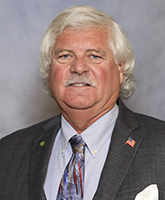
As noted in my message last month, we have been talking with many members over the past few months about a proposal to change ASSP’s governance. I strongly encourage you to visit our governance web page at www.assp.org/governance to review our FAQs and other materials so that you can better understand the proposal, submit your questions and connect with your volunteer leaders before the House of Delegates votes on Tuesday, Sept. 28.
As we have listened to members during our engagement sessions, the feedback has primarily focused on two key issues:
1. What are the business reasons to make this change?
2. How can we ensure continued representation for our various member communities, including chapters, practice specialties, common interest groups, regions and councils while also creating opportunities for others to have a voice?
I’d like to take a closer look at those issues and share some insights from three members of the Governance Task Force.
One key driver behind this proposal is our need to comply with association management best practices, a move that would eliminate legal and financial risks that our current structure creates under Illinois law. ASSP must have one governing body—the Board of Directors.
And, like any business, ASSP must adapt to and incorporate modern operating principles to remain competitive and relevant. In conversations with members about our current structure, I have used analogies about the typewriter and the rotary phone, business tools long ago replaced by computers and mobile devices. “To benefit from all the things the Society provides to its members, governance is critical. It’s the building block, the foundation of how we get to where we want to be,” says Monique Parker, CSP, one of 10 members appointed to the task force.
Following these best practices would also enable ASSP to be more agile in its decision-making. Recognizing the need for swiftness in business operations was a key learning for members of the Governance Task Force. “We will be able to move much more quickly to make the changes we need to be relevant long term,” explains Abby Ferri, CSP.
As part of its operating procedures, the Governance Task Force made a specific commitment to engage in open debate and not proceed as if their work was simply a confirmation exercise. “We went through multiple processes of boiling down, rejecting and combining ideas,” says Wyatt Bradbury, M.Eng., CSP, CHST, CIT. “There was a lot of diversity with different businesses and backgrounds represented on the task force. I think it was really important that we exemplified the diversity we want to see.”
And our commitment to greater diversity—of thought, representation and individuals—is another key driver of this governance proposal. By transitioning all current delegates to become at-large advisors, we would continue to have representation for our various member communities, including local chapters, practice specialties, common interest groups, regions and councils. Then, through an open invitation to all members via our Leadership Connection process, we would provide a more inclusive, year-round opportunity for engagement and contributions. We believe this would create new opportunities to hear from voices we have not had access to before.
“Through the open at-large process, members are going to be able to represent the interests of their local chapter community and also the interests of other ASSP groups that they’re a part of,” Bradbury explains. “The advisory group would be much larger than the current size of the House of Delegates, and it is something that can be molded and morphed, depending on the issues at hand.”
This approach would also enable us to provide more microengagement opportunities through which members can participate in and contribute to work that matters most to them. “This is a really interesting and exciting way to activate people who haven’t been able to step up and whose contributions we’ve been missing,” Ferri says. Parker echoes that sentiment: “I want to reinforce that I think the biggest thing about the recommendations that have come about is that this is an opportunity to diversify the voice of our Society.”
We are excited about the potential of the at-large advisory group, and we are confident this change will best position ASSP for long-term success.